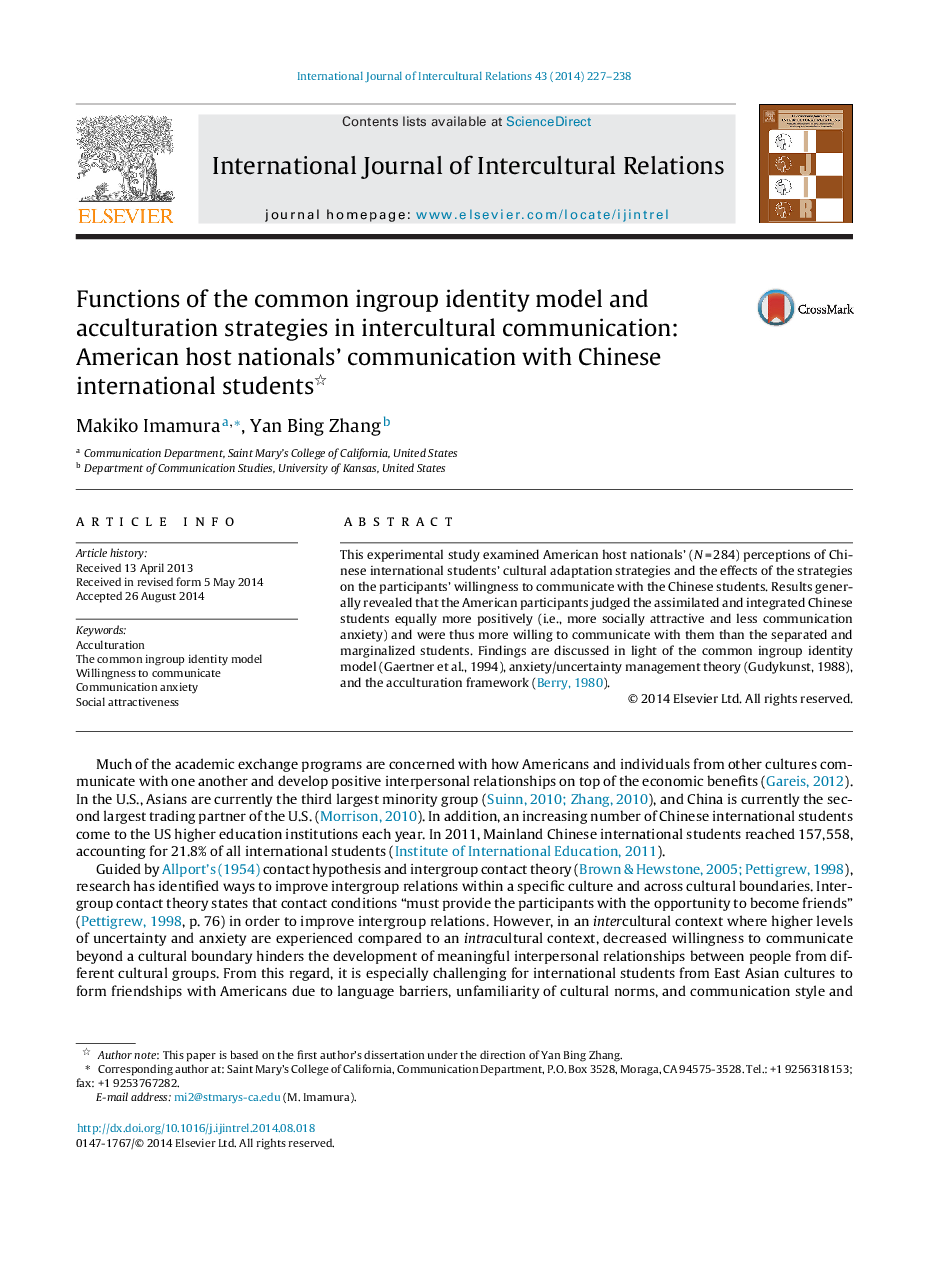| Article ID | Journal | Published Year | Pages | File Type |
|---|---|---|---|---|
| 947062 | International Journal of Intercultural Relations | 2014 | 12 Pages |
This experimental study examined American host nationals’ (N = 284) perceptions of Chinese international students’ cultural adaptation strategies and the effects of the strategies on the participants’ willingness to communicate with the Chinese students. Results generally revealed that the American participants judged the assimilated and integrated Chinese students equally more positively (i.e., more socially attractive and less communication anxiety) and were thus more willing to communicate with them than the separated and marginalized students. Findings are discussed in light of the common ingroup identity model (Gaertner et al., 1994), anxiety/uncertainty management theory (Gudykunst, 1988), and the acculturation framework (Berry, 1980).
